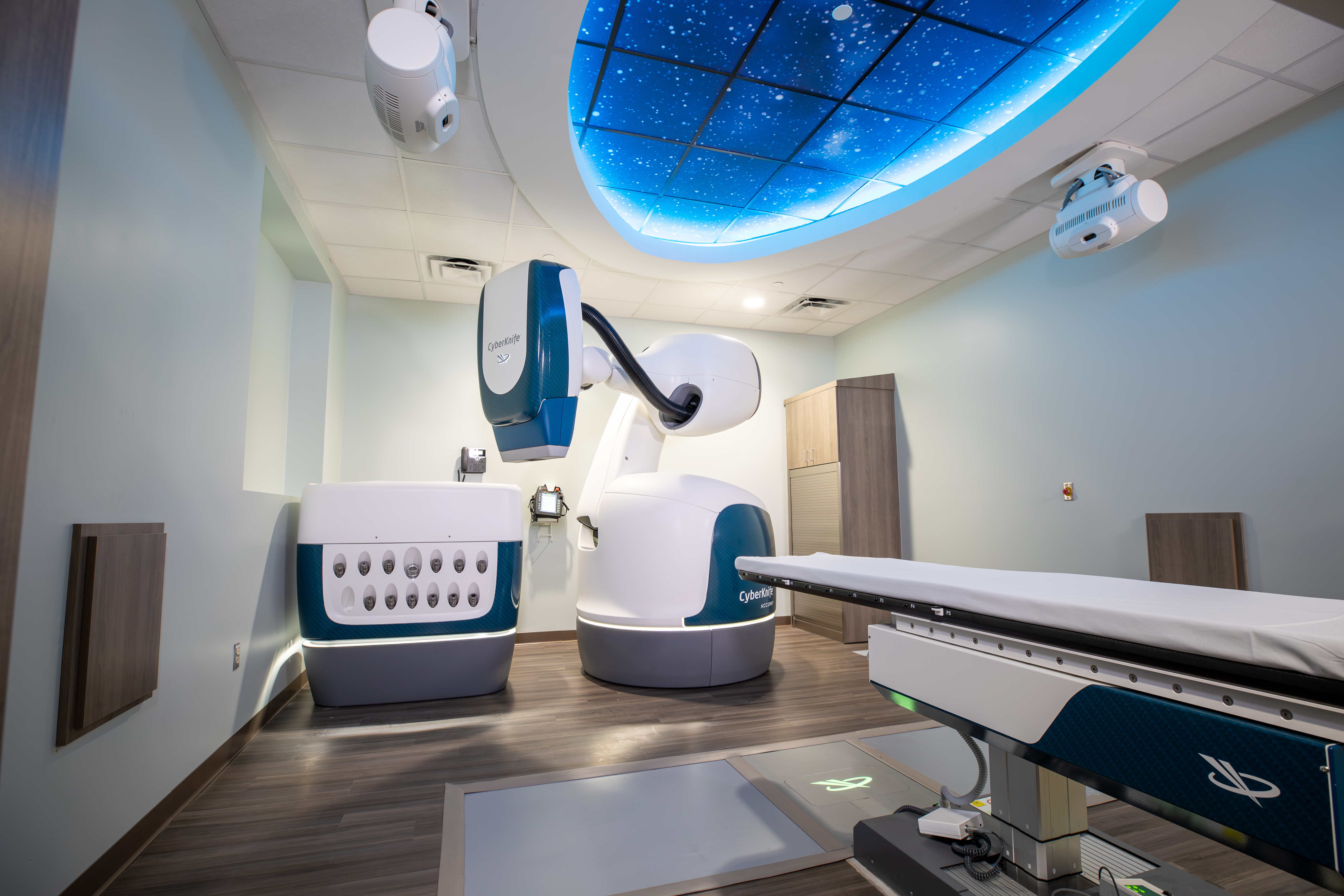The world-renowned radiation oncologists at Tampa General Hospital’s Cancer Institute have extensive experience using state-of-the-art therapies to help patients achieve the best possible results. This includes the CyberKnife® S7, a fully robotic radiotherapy device that uses stereotactic radiosurgery (SRS) and stereotactic body radiation therapy (SBRT) to accurately deliver precise doses of radiation to both cancerous and noncancerous tumors while sparing adjacent healthy tissue.
What Conditions Is CyberKnife Used to Treat?
Physicians use CyberKnife to treat a wide range of conditions, including:
Notably, CyberKnife can often be used to treat malignancies that have metastasized (spread) to other areas of the body. For example, it could potentially be used to treat breast cancer that’s metastasized to the brain or the lungs.
What Does CyberKnife Treatment Involve?
CyberKnife is the only radiation delivery system featuring a linear accelerator directly mounted on a robot. During a treatment session, the robot moves and bends so that it can deliver radiation from thousands of unique angles, all with the goal of precisely targeting the tumor and sparing surrounding tissue.
Because CyberKnife incorporates real-time image guidance and motion synchronization, it’s able to take normal movements into account, such as those made when the patient breathes or coughs. This eliminates the need for patients to wear braces or restraints during treatment.

What Can You Expect from CyberKnife Treatment?
During a CyberKnife treatment session, the patient lies comfortably on a table while the robotic arm moves around them, never touching them. CyberKnife treatment typically requires one to five sessions, with each session lasting approximately 30 to 90 minutes . It’s performed on an outpatient basis, meaning that it doesn’t require hospitalization, and it also doesn’t involve the use of anesthesia.
Is CyberKnife Effective?
Results vary from one patient to another, but CyberKnife is generally considered to be a highly effective form of cancer treatment. When compared to conventional radiation therapy, CyberKnife generally produces fewer side effects and doesn’t require as many treatment sessions.
A significant benefit offered by CyberKnife is that it can often be used to treat tumors otherwise considered to be untreatable. For instance, because CyberKnife is so precise, it’s able to be used on tumors that are inoperable because they’re located too close to the brain or spinal cord.
Choose CyberKnife Treatment at Tampa General Hospital
If you’d like to know more about CyberKnife and whether you might be a candidate for this innovative cancer treatment, contact Tampa General Hospital at (813) 844-7585 to request a consultation. We’ve repeatedly been named as Tampa Bay’s No. 1 hospital and recognized as One of the Nation's Best for Cancer care by U.S. News & World Report in 2024-25.


